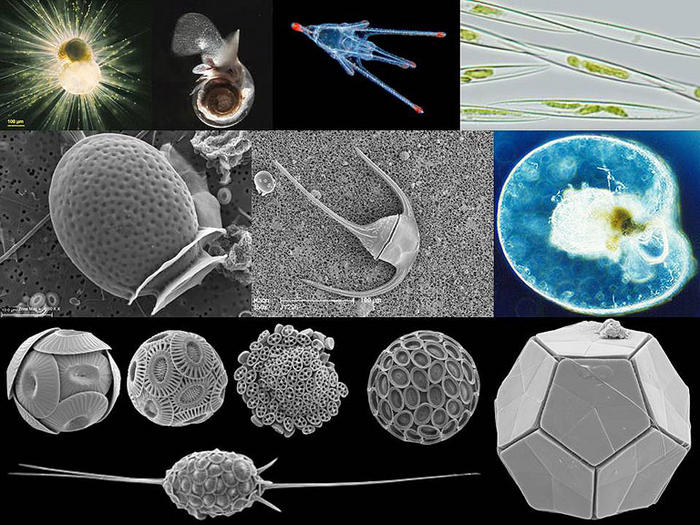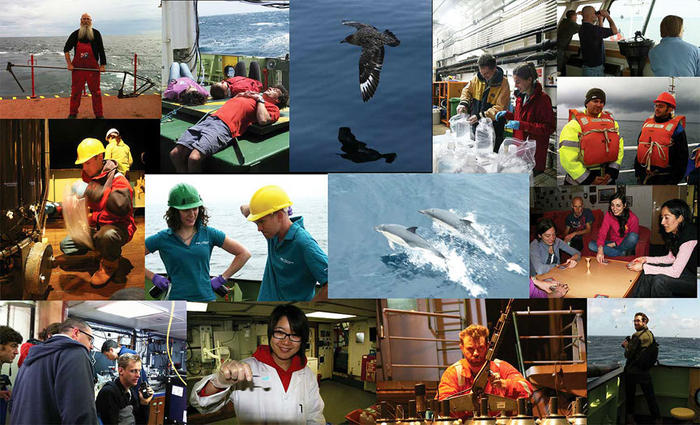This last blog entry is by Toby Tyrrell and Eric Achterberg.
Today is the end of the cruise for most of us, and a welcome chance to relax a little, catch up on sleep and then start writing the cruise report and packing the equipment. The cruise has gone very well, with all of our planned work carried out and much more besides. We have collected samples through a wide range of different environments, including shallow and deep, mixed and stratified, nutrient-rich and nutrient-starved, and the aftermath of an intense coccolithophore bloom. We have encountered multifarious different types of marine life. For instance, just at the microbial level, the main subject of study for this cruise, we have visited waters with abundant diatoms, dinoflagellates, coccolithophores, foraminifera, pteropods and echinoderm larvae, among others (see image for some of them).
We have also been treated to some delights of marine tourism, including dolphins, squid, pilot whales, a sperm whale, swimming crabs!, jellyfish and of course many many seabirds all along the way.
In the 30 days of the cruise we have carried out 5 bioassay experiments of about 80 bottles each, 70 CTD stations comprising ~1500 sampling bottles, 320 underway sampling points and more than 1000 samplings points for flow cytometry. We have brought on deck about seven tonnes of water; we have filtered in the region of two tonnes in total. Everyone has worked extremely hard, working long shifts and uncomfortable hours.
Our challenge now is to make sense of all of the data and to use it to improve our understanding of the consequences of ocean acidification. Otherwise all of the data collection will have been in vain. Similar or even greater levels of effort and professionalism will go into processing and analysing the data. Further insights and surprises can be expected as this all gets completed.


All of this science would of course not have been possible without the work of the officers and crew of the RRS Discovery, who have looked after all other matters so that we could concentrate on the science. A big thank-you from all of us.
The teamwork by all on the ship has made this a very successful and pleasant cruise. We have had a lot of fun, and discovered interesting traits in people. Steve’s desperation for rice pudding comes to mind, and Tingting’s ability to both work hard and sleep hard (round the clock).
We hope you have enjoyed reading this blog. Our next ocean acidification cruise will take place in the Arctic Ocean in July/August 2012. We hope you will be joining us again then!

